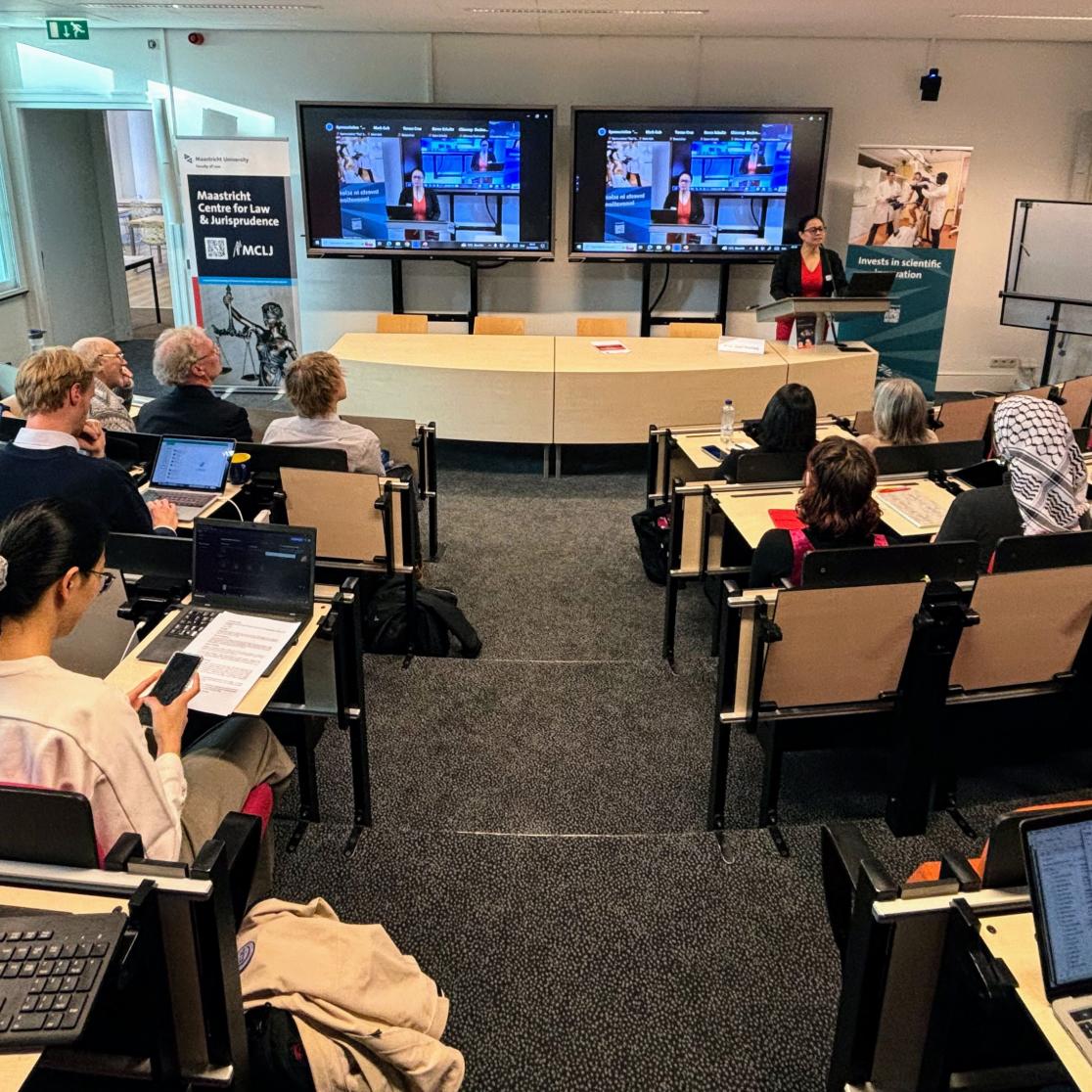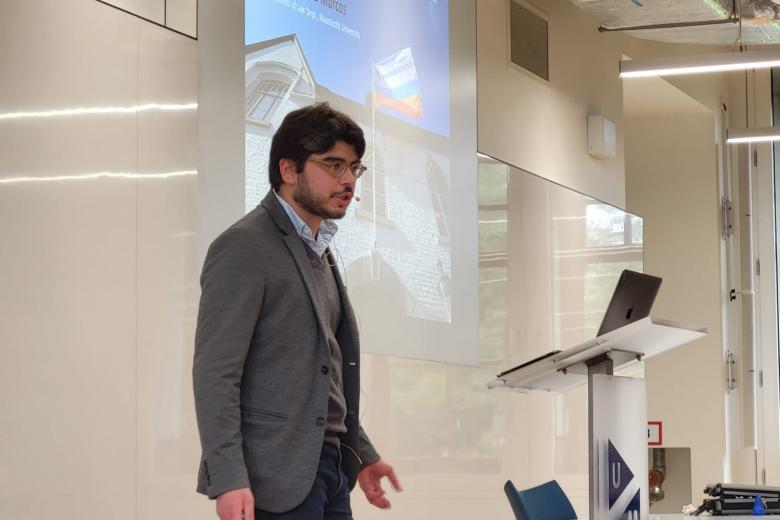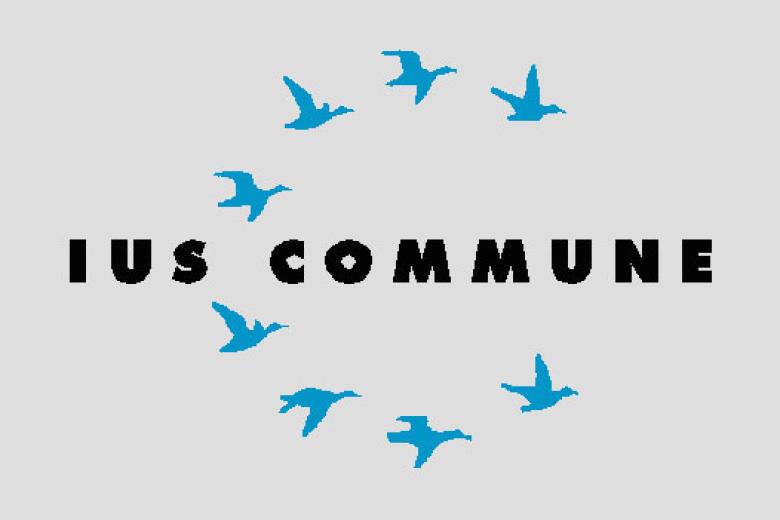The Stories We Tell Ourselves about Law and Technology
On 30-31 October and 1 November 2024, Maastricht University Faculty of Law held the Narratives, Frontier Technologies & The Law (NFT-L) Conference. The goal of this conference was to examine the interplay between frontier technologies and the law, mainly how the stories we tell ourselves (our narratives) influence the development of the regulation of such technologies. Spread over three days, nearly thirty presentations across six panels and six keynote speeches were held. The conference provided an engaging platform for academic and cultural diversity. It brought together experts in mathematics, biomedicine, philosophy, law, and the humanities from institutions like Harvard University to Queensland University of Technology, with voices from across the globe, from Bahrain to Sweden, Brazil to India.
Stories hold immense power. They provide a sense of control over the world by allowing us to perceive patterns amid chaos and find meaning in randomness. Our tendency to see narratives where there may be none adds meaning to our lives and serves as a form of existential problem-solving. The creation of fiction—the ability to envision possibilities beyond our immediate reality—has been an evolutionary advantage for our species. Our propensity to create and perpetuate stories partially defines what it means to be human.
Unique opportunity
Holding a conference on how narratives affect the regulation of frontier technologies—radical scientific breakthroughs with real-world applications that reshape society, commerce, industry, and communications, including artificial intelligence, machine learning, robotics, the Internet of Things, big data, autonomous systems, genomics, and augmented or virtual reality—was a unique opportunity, especially relevant to today’s world. While technologies are crucial for humanity’s survival amid challenges (climate change), they also pose potential risks. Moreover, the ethical considerations surrounding technology regulation may clash with prevailing narratives that question or raise concerns about the imminent trajectory of scientific or technological singularity.
Keynotes, presentations and discussions
The conference kicked off with an online keynote by Kieran Tranter from the Queensland University of Technology, who explored how humans interact with and are shaped by technology, emphasising the interconnectedness of narratives and technological advancement. The first session examined the ethical dilemmas posed by emerging technologies, focusing on AI's integration with neurotechnology, biases in legal proceedings, and the potential future of 3D bioprinting in organ transplantation, while session two, the focus shifted to the narratives shaping our understanding of technological progress,
Day two saw the arrival of in-person attendees at Maastricht University’s Faculty of Law, beginning with a keynote from Bart Verheij on the impact of narratives in interpreting AI and legal knowledge. The third session addressed the societal implications of frontier technologies, discussing food security, human genome editing, and the influence of AI on public policy. Next, the focus shifted to intellectual property and privacy concerns, with speakers tackling issues like user-generated content in gaming, AI-created art, and data sovereignty in the context of global governance. The second day ended with a keynote by Pauline Phoa on a Hermeneutic approach to technology regulation.
On the final day, Harro van Lente’s keynote highlighted the role of future expectations in shaping technological development. Another presentation explored the democratic and commercial exploitation of frontier technologies, covering algorithmic biases in healthcare, quantum technology policy, and gender biases in social media algorithms. Session six had speakers bridged the humanities and technology, discussing how science fiction and philosophical frameworks can inform the regulation of frontier technologies. The conference concluded with a keynote by Dr Eduardo Gill-Pedro on Stories, Rights, and the Naturalisation of Corporate Technology.
Over the conference's three days, participants engaged in discussions that deepened our understanding of how legal norms intersect with rapidly evolving technological landscapes and are shaped by the narratives we tell one another. We recognise that much more discussion is needed. With this in mind, we plan to continue the Narratives, Frontier Technology, and the Law conferences yearly.
Some acknowledgements
Hosting this conference in Maastricht, organised by two non-Europeans, two immigrants from the Global South, highlights the inclusive and dynamic nature of the academic community at our University and underscores the role international scholars play in shaping a more inclusive, globally engaged, and innovative future for higher education.
The conference was supported by Universiteitsfonds Limburg SWOL and the Wetenschapscommissie Faculty of Law. We also thank the support given by the Law, Technology, and Humans journal, the Maastricht Centre for Law and Jurisprudence (MCLJ), the Institute for Globalisation and International Regulation (IGIR), the Globalization and Law Network (GLaw-Net), and the Maastricht Law & Tech Lab.

H. Jerônimo Bezerra Marcos
Dr Henrique Jerônimo Bezerra Marcos (He/Him/His) is a legal scholar specialising in international law, legal reasoning, and the philosophy of law. His research focuses on how law and technology shape the governance of environmental futures, particularly in the context of the climate crisis and ocean governance.

-
The Decennial Jubilee of Ius Commune in the Making
On 27 November 2025, the tenth edition of the workshop series on Ius Commune in the Making took place within the 29th Ius Commune Conference organised by the University of Amsterdam. This blog entry reproduces a public address by one of the members of the organising committee of that workshop series...

-
Overriding Mandatory Rules in International Arbitration: Balancing Business Freedom and State Interests
Imagine two companies from different countries enter a business deal. They pick a neutral country’s law to govern their contract and agree to arbitrate any disputes, thinking they can sidestep each other’s national courts. But what if one country’s law absolutely prohibits something in the deal –...

-
What is coercion?
According to classic economic thinking—and to common sense—if two parties agree to a deal, both are made better off, otherwise they would not have agreed. This idea is also reflected in contract law, at least in its basic form, treats consent as the cornerstone of a valid contract. If both sides say...

